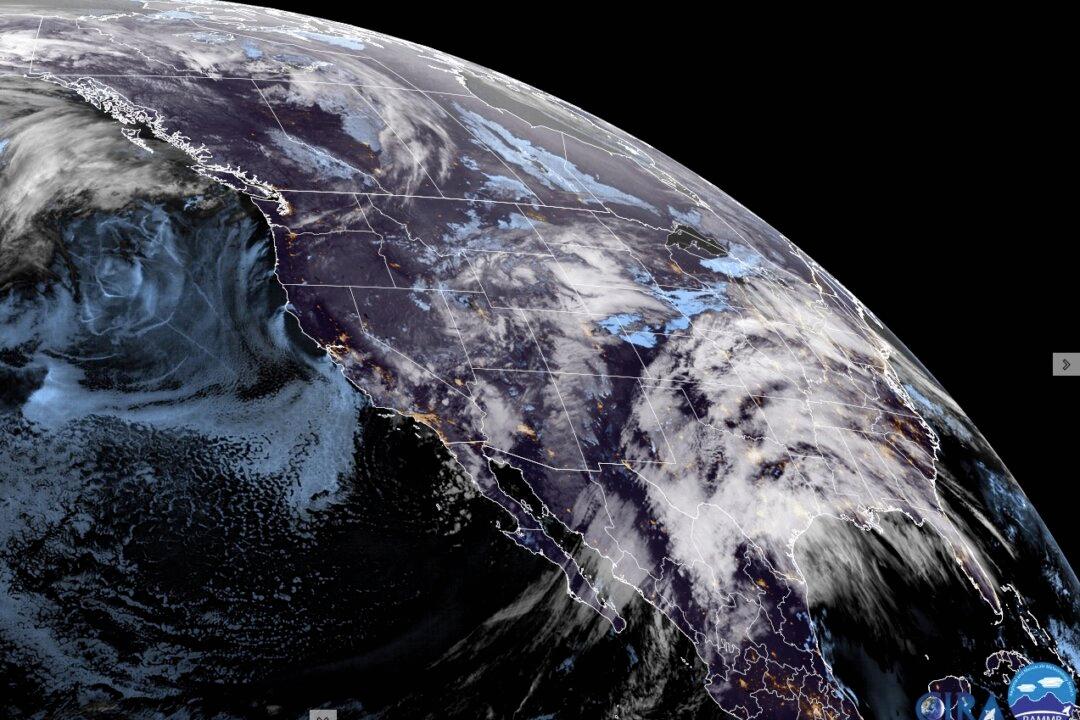A significant storm that has already arrived in California is expected to hit several regions across the United States this week, bringing a swath of heavy snow and thunderstorms that could lead to hazardous travel conditions.
The National Weather Service (NWS) issued an alert on Sunday morning stating that “severe thunderstorms” are expected to occur this week as a strong storm moves from the west across the central and eastern U.S. regions.





